大学英语修辞学课件2
- 格式:ppt
- 大小:53.00 KB
- 文档页数:11

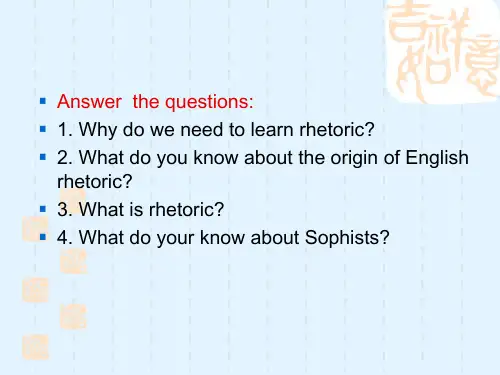
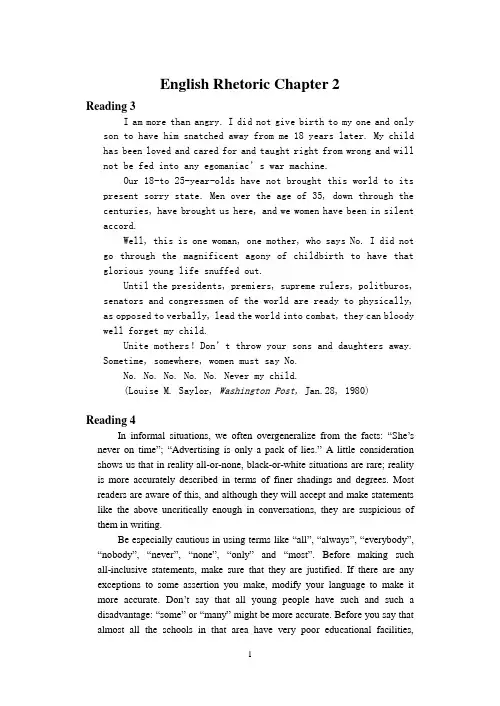
English Rhetoric Chapter 2Reading 3I am more than angry. I did not give birth to my one and onlyson to have him snatched away from me 18 years later. My child has been loved and cared for and taught right from wrong and will not be fed into any egomaniac’s war machine.Our 18-to 25-year-olds have not brought this world to its present sorry state. Men over the age of 35, down through the centuries, have brought us here, and we women have been in silent accord.Well, this is one woman, one mother, who says No. I did not go through the magnificent agony of childbirth to have that glorious young life snuffed out.Until the presidents, premiers, supreme rulers, politburos, senators and congressmen of the world are ready to physically, as opposed to verbally, lead the world into combat, they can bloody well forget my child.Unite mothers!Don’t throw your sons and daughters away.Sometime, somewhere, women must say No.No. No. No. No. No. Never my child.(Louise M. Saylor, Washington Post, Jan.28, 1980)Reading 4In informal situations, we often overgeneralize from the facts: “She’s never on time”; “Advertising is only a pack of lies.”A little consideration shows us that in reality all-or-none, black-or-white situations are rare; reality is more accurately described in terms of finer shadings and degrees. Most readers are aware of this, and although they will accept and make statements like the above uncritically enough in conversations, they are suspicious of them in writing.Be especially cautious in using terms like “all”, “always”, “everybody”, “nobody”, “never”, “none”, “only”and “most”. Before making such all-inclusive statements, make sure that they are justified. If there are any exceptions to some assertion you make, modify your language to make it more accurate. Don’t say that all young people have such and such a disadvantage: “some” or “many” might be more accurate. Before you say that almost all the schools in that area have very poor educational facilities,ascertain from some reliable source whether more than 80 percent actually do;otherwise you are not really justified in saying it. Keep in mind that the English vocabulary provides you with a wealth of qualifying terms (some, few, often, to name only a few) and choose those that most accurately describe the number, extent, and frequency of the facts you are asserting.Exercise twoⅠ. Identify the reasoning pattern used in each of the following passages.1.There seems to be a general assumption that brilliant people cannotstand routine, and that they need a varied, exciting life in order to dotheir best. It is also assumed that dull people are particularly suited fordull work. We are told that the reason present-day young people protestso loudly against the dullness of factory jobs is that they are bettereducated and brighter than the youth of the past. (Eric Hoffer, “DullWork”)2.The cases of Adolf Beck, of Oscar, of the unhappy Brooklyn bank tellerwho vaguely resembled a forger and spent eight years in Sing Sing[State Prison in New Y ork] only to “emerge”a broken, friendless,useless, “compenstated” man—all these, if the dignity of the individualhas any meaning, had better have been dead before the prison door everopened for them. This is what counsel always says to the jury in thecourse of a murder trial and counsel is right: far better to hang this manthan “give him life.”(Jacques Barzun, “In Favor of Capital Punishment”)Ⅱ. Fill in each blank with an appropriate preposition.Emotional fallacies appeal directly (1)_______ the human frailties(2)_______ the audience: some (3)________their prejudices, some (4)________ their vanity, some (5)________their national pride, others(6)_______their desire to emulate people they admire. Because(7)______this, they exert great persuasive force. These fallacies should beavoided (8)______writing (9)______essentially the same reason that you shun slanting: they deceive your readers. Remember how often you have felt cheated because an advertiser convinced you to buy an expensive, ineffective product (10)______ playing (11)______your desire to be attractive (12)______the opposite sex. Using such tactics(13)_______argument can only have short-range effectiveness; yourcommitment should be to make a lasting impression (14)______your readers.(Michael E. Adelstein and Jean G..Pival: The Writing Commitment, 2nd ed. 1980, pp. 328-329)III. An elementary acquaintance with the general patterns of inference can help writers in two ways.,1.It can make them aware of the premises that underlie an argument.Analyze the following example and provide its major premise:“There is a school ahead. Here we come across a traffic sign onwhich there are school children.”2.It can also help a writer check the validity of his line of reasoning.Examine the following example, point out its fallacy and provide possible remedies:Some elected officials are bribe-takers.Smith is an elected official.Therefore, Smith is a bribe-taker.IV. Identify the fallacies of pathos in each of the following paragraphs as “Ad Hominen”, “Name calling”, or “Bandwagon Appeal”with the help of a dictionary.1.Many advertising slogans urge readers to buy something so that they becomeassociated with the majority of people or with a particular prestigious group: “Beer belongs,”“Camels aren’t for everybody (but then, they don’t try to be),”“John the Pepsi generation,”“The car for the people who think,”“长龙,只为少数派的宣言”.2.When challenged by an opponent to discuss military spending, a politicianaccuses the opponent of alcoholism.3.He (the male) is a half dead, unresponsive lump, incapable of giving orreceiving pleasure or happiness; consequently he is at best an utter bore, an inoffensive blob, since only those capable of absorption in others can be charming.。
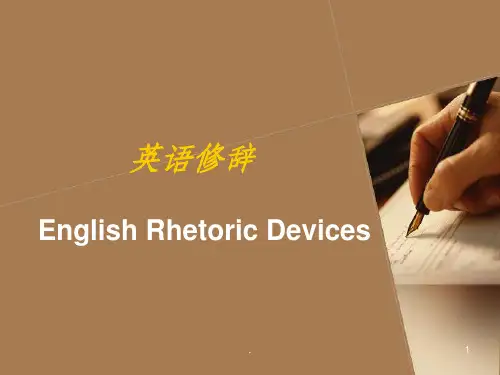
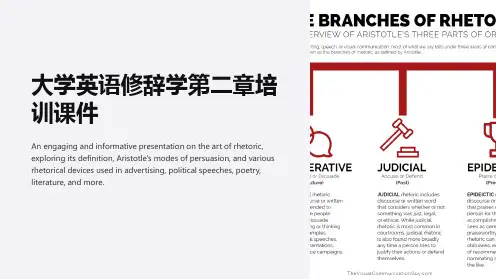

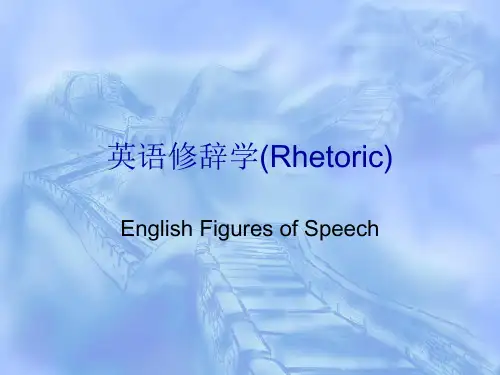
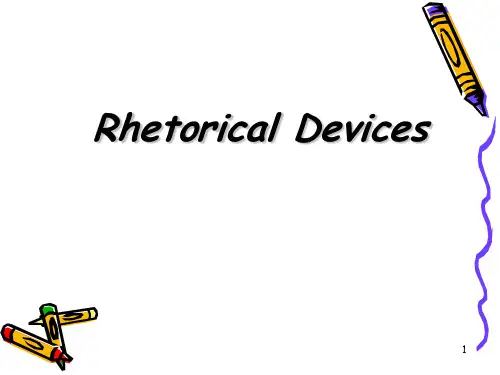
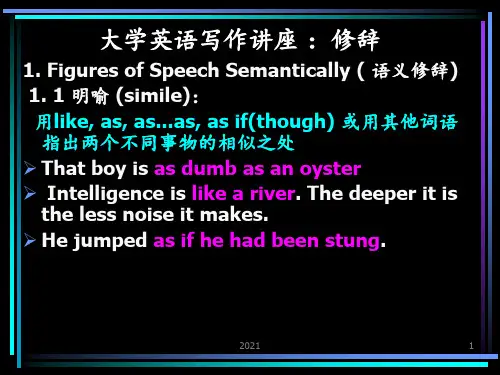
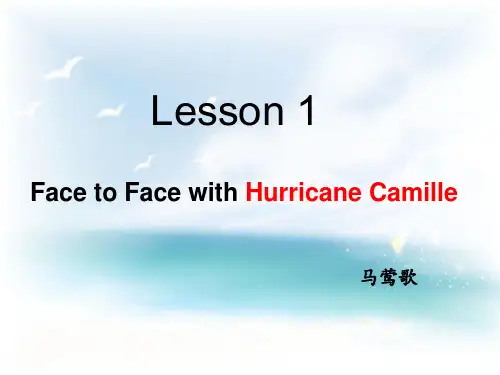
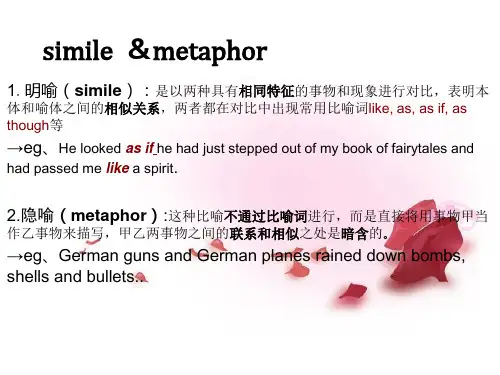
Chapter 2 The Three Aesthetic Criteria in English RhetoricEnglish rhetoric has long-standing traditions tracing back to Aristotle (382-322BC) and even earlier. The three aesthetic criteria, logos, pathos and ethos, are its fundamental elements.The three aesthetic criteria discussed here are confined to their basic meanings and applications in writing and speaking, equivalent to Chinese―逻辑‖、―情感‖and ―人格‖respectively. Although they can be analyzed separately, these three appeals work together in combination toward persuasive ends.2.1 Logos2.1.1 Logos and logical thinking•Logos refers to the use of logical reasoning to persuade the audience or readers.Effective logical reasoning comes from sound logical thinking, expressed in relevant material, proper organization, coherent sentences, and words that appropriately convey one’s intended meanings. Examine the following example t aken from a student’s composition:To us Chinese, learning a foreign language is not an easy thing. After all, it is different from our mother tongue. Others can learn it well, why not we?Improved paragraph:Learning English is not an easy thing for a Chinese student like me, because English is quite different from my mother tongue in spelling, pronunciation and grammar. However, since many other Chinese students have learned English well, why can’t I?2.1.2 Formal logic and syllogism•Formal logicIn formal logic there are two basic approaches people often use for logical reasoning: deduction and induction.Deduction is the process of drawing a conclusion from propositions命题known to be true, or accepted as true, or assumed to be true. The typical expression of deductive inference is the syllogism 三段论(法).Induction is the opposite process of reasoning, the conscious mental process by which we pass from the perception of particular phenomena (things and events) to the knowledge of general truths. The sense perception is expressed logically in the singular or particular judgment.•SyllogismSyllogism represents deductive reasoning in a pattern consisting of a major premise, a minor premise, and a conclusion. The essential feature of deduction is the necessary character of the connexion between the antecedent or premises and the consequent or conclusion. Granted the truth of the antecedent judgments, the consequent must follow; and the firmness of our assent to the latter is conditioned by that of our assent to the former.Common patterns of syllogism:1. The hypothetical syllogism:Major premise: If P, then Q If P, then QMinor premise: P Not QConclusion: Therefore Q Therefore not PExample:If the lines of a poem do not rhyme, the poem may be called blank verse; as this poem is rhymeless, you may call it blank verse.2. The either-or syllogism:Major premise: Either A or B (not both) Either A or BMinor premise: A Not AConclusion: Therefore not B Therefore BExample:We could have driven here or taken a taxi. Unfortunately our car broke that day, and so we went there by taxi.3. The categorical syllogism:Major premise: All M’s are P’sMinor premise: S is an MConclusion: Therefore S is a PExample:All men are mortal creatures. Socrates is a man. Therefore, Socrates is a mortal creature.2.2. Pathos2.2.1 Changes in the connotation of pathosOriginally, the term ―pathos‖ referred to the emotions in general which a speaker tried to arouse in the audience. In modern rhetoric, it ranges from the study of the psychology of the audience or readers to the application of technology to convince them by emotional appeals.The effects of emotional appeals include moral anger, ambition, excitement, fear, happiness, pity as well as various other feelings. By playing upon such feelings, the writer intends to change the beliefs and behavior of his or her readers.2.2.2 Pathos in use todayEffective appeals to the emotions depend upon the skillful — often witty handling of language, frequently accompanied by exposure and eloquence.•Exposure evokes moral indignation – sometimes humorously, sometimes angrily – by condemning the unjust reality or revealing the difference between how things should be and how they are.Please read a letter in your handout 1, Reading 3 that shows how an American mother resorts to this skill to move others to stand against the US unjust war in Vietnam.•Eloquence refers to language used powerfully and fluently to appeal to people’s nobler emotions--the sense of honor, love of one’s country and hometown, desire to reach toward virtue. Eloquence i s often used emotively, to express one’s emotions and evoke the sympathy of the audience on solemn occasions or issues of great significance. In this respect, the speech made by Martin Luther King, Jr., on August 28, 1963, at the March on Washington can be regarded as a fine sample of ―the emotional crescendo of an emotional day‖2.3 Ethos2.3.1 Multifaceted meanings of ethosThe three basic aspects:•It generally refers to character, sentiment, moral nature: The guiding beliefs, standards, or ideals that characterize or pervade a group, a community, a people, or an ideology; or the spirit that motivates the ideas, customs, or practices of a people, an epoch, or a region.•It refers to the complex fundamental values that underlie, permeate, or actuate major patterns of thought or behavior in any particular culture, society, or institution.•In Aristotelian philosophy, it refers to the character or personality of a human being, especially with respect to a balance between the passion and caution, or the con trast between one’s thought and action.2.3.2 Ethos in rhetoric•In modern rhetoric, ―ethos‖ demonsrates itself in the following ways:1. On serious occasion or disputes of principle, ethos takes as its basis a thorough going study of various schools of philosophical views on different values, different ways of living and different world outlooks.2. In ordinary speech or writing, ethos refers to the personal standing, academic authority, and moral qualities of the writer or speaker, used to guarantee or even raise the writer’s or speaker’s credibility and acceptability in the eyes of the readers or audience.2.4. Fallacies2.4.1 Fallacies in logical reasoningThe term ―fallacy‖ as used in logic refers to the following two cases:1. When a writer makes misleading statements by withholding facts, slanting evidence, drawing an unjustified inference, or arguing beside the point.2. When a writer’s (or speaker’s) attempt to reach a sound conclusion is thwarted because he does not know enough about a situation or because he makes a mistake in interpreting his information.•Some of the common errors in logical reasoning:Non sequitur不根据前提而下的论断:the phrase means ―it does not follow‖ and applies to errors of reasoning in which the conclusion does not follow from the evidence presented. Sometimes a step in reasoning has been omitted, and the fallacy can be corrected by supplying the missing link. But sometimes the conclusion is drawn from evidence that has no bearing on the issue.For example, once a Scot argued that Shakespeare must have been a Scot, and when asked for his evidence, he replied, ―The ability of the man warrants the assumption.‖ Reasoning of this kind is also called ―false assumption‖.Begging the question (故意回避论点时)以假定为论据的狡辩The phrase means to assume the truth of a point that needs to be proved.Examples:―This senseless language requirement should be dropped.‖―The foreign language requirement, because it is valuable, should be retained.‖These two views, contradicting each other, are both begging the question, i.e. they both assume what they should prove. There is an extended form of begging the question called ―circular reasoning‖ 循环论证.For example:―T.S. Eliot is the best 20th-century poet, because the best critics say so.‖Post hoc, ergo propter hoc:牵强附会The phrase in Latin refers to the generalization from insufficient evidence as ―based on this supposition, therefore, on account of it‖. For example:―Since they abolish ed capital punishment, the crime rate there has increased, which tells that capital punishment must be restored.‖This conclusion is not well grounded, for although the abolition can be a factor to the crime increase, other factors, such as economic depression and increase of unemployment, must also be observed.2.4.2 Fallacies related to pathos•Fallacious use of pathos arises chiefly from two types of relations:1. When one lacks evidence, and tries to please people’s ears by emotional appeal.2. When one is poor in logical reasoning, and resorts to sophistry or merely personal attack to divert the readers’ or audience’s attention from the grounds of the argument.•Two common errors in the use of pathos:1. Ignoring the question:This is a broad term for various irrelevant arguments. Some people merely resorts to using fine words or other emotional means to persuade the audience to arrive at a judgment without examining the evidence. What a governor said in defense of his administration can be taken as an example:My administration is not corrupt because the state budget is balanced, and my devotion and dedication to the fine people of this great state is therefore evident.2. Argument about a person:This fallacy is also called ―Personal attack‖ or ―Argument Ad Hominem‖, which resorts to abusing the character of an opponent rather than disputing his opinion.Example:The public should not take seriously Dr. Mason’s plan for upgrading county health service. He is a former alcoholic whose wife recently divorced him.2.4.3 Fallacious use of ethos•Blind worship of one’s own standard of ethos1. Since there are differences in ethos in different regions, different c ountries and different groups of people, the correct attitude is to respect each other, and seek the common ground while reserving differences, otherwise there will be disputes, quarrels, conflicts and wars.2. Certain people of power tend to compel other people and even other countries to accept their standard of ethos. For example, according to Hitler, his nationality and his ideology were superior to all others and had the right to lord it over them.•The practice of ―sham ethos‖ 虚假的1. Business advertisements are important means to promote sales, but there are people who resort to false propaganda in their ad campaigns. For example, some companies declare their products are a ―famous brand‖ or fabricate names which sound or appear similar to t hose of world fame. However, such dealing is dishonest and will definitely cause troubles.2. Name cards are useful in communication, but some people print a long list of titles and positions on a small card so as to raise their status. However, this may produce a negative effect, because some of the titles or positions are not so significant.Assignment: See your Handout 1: Exercise Two。